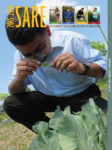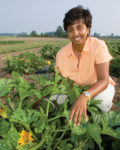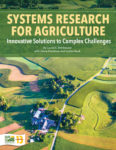Showing 51-60 of 175 results

Basics of Cover Cropping
Introduction to Cover Crops Selecting and Establishing Cover Crops Terminating Cover Crops Plus Strategies for Planting a Cash Crop Following Cover Crops

Advanced Cover Cropping Insights from Farmer Experts
Great Plains Perspective Central Corn Belt Perspective Eastern Perspective

Digging into Soil Health
Soil Health Principles Soil Health Testing and Practices Soil Biology and Organic Matter

Cover Crop Role in the Cropping System
Cover Crops and Nutrient Management Cover Crop Impacts on Diseases and Insects Cover Crops, Herbicides and Dealing with Herbicide-Resistant Weeds

Economic and Environmental Aspects of Cover Crops
Economics of Cover Crops Business Opportunities with Cover Crops and Soil Health Environmental Impacts of Cover Crop Systems

Special Topics with Cover Crops and Soil Health
Organic and Specialty Crops Grazing Cover Crops Soil Health Policy Issues

2015/2016 Report from the Field
Read about SARE-funded work in the areas of sustainable dairy cropping systems, soil health assessments, nutrient management, cover crops, beginning farmers, pollinators, technical assistance programs for women farmers, and more. This edition includes highlights of projects funded through the graduate student program, and the highly regarded Sustainable Agriculture Fellowship, a professional development program coordinated by SARE and NACAA.

Cover Crop Innovators Video Series
Find short video profiles of farmers around the country who are using cover crops on their land.

National Continuing Education Program
This program is designed for Cooperative Extension and Natural Resource Conservation Service personnel, and is also open to farmers, ranchers, and other agricultural professionals nationwide. It emphasizes core concepts and a basic understanding of sustainable agriculture, its goals and its relevance to every farming and ranching operation—large or small. The core of the national continuing education program is a series of three online courses. Take them now.

Systems Research for Agriculture
Practical information for researchers, educators and extension professionals seeking to understand and apply systems research to agriculture.